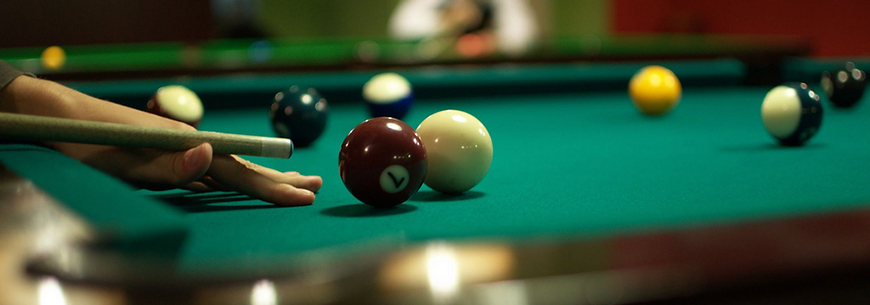The biggest lesson I've learned in 2017 I learned from shooting pool.
I was reviewing the difference in my approach to the game from 2012 to mid-December 2017.
In 2012 I joined a team with the goal being to be known as the nicest person in the pool hall. Until that point, I wasn't a good sportsman – neither a good loser or a good winner. I didn't play well with others. I was always out to win and wasn't nice about it.
Then, in 2016 I began to focus on my actual playing and being more open to coaching from those on my team as well as from a few extraordinary players in the pool hall. I had been in tournaments throughout this time, but in 2016 I spoke with the Winners, the extraordinary players, the high ranked players who also were nice to be around and asked them about their mindset. Each had a very similar approach to the game, and honestly … it boiled down to letting the other player make the mistakes. I realized just recently that in 2017 I learned how to let that happen. I'm still at the beginning of using this knowledge, but the evidence is apparent that I have been using it – I've been winning much more than I've been losing, and I'm still called the nicest person in the pool hall.
Then, in a year-end roundup of the Best of 2017 email I received from Farnam Street Blog (I've been a subscriber and reader for a few years), I saw the piece below referenced and realized that it articulates my experience better than I can. What I also see is that this mindset will have a positive impact on the growth of my business.
Extraordinary Tennis Ordinary Players by Simon Ramo, a scientist and statistician.
The difference between a Winner's Game and a Loser's Game.
Players play by the same rules and scoring. They play on the same surface using similar equipment. The basic elements of the game are the same. The key insight Ramo gives is that between the amateur and the pro the games are fundamentally different.
Pros win points. Amateurs lose points.
“In expert tennis, about 80 percent of the points are won; in amateur tennis, about 80 percent of the points are lost. In other words, professional tennis is a Winner’s Game – the final outcome is determined by the activities of the winner – and amateur tennis is a Loser’s Game – the final outcome is determined by the activities of the loser. The two games are, in their fundamental characteristic, not at all the same. They are opposites.
…if you choose to win at tennis – as opposed to having a good time – the strategy for winning is to avoid mistakes. The way to avoid mistakes is to be conservative and keep the ball in play, letting the other fellow have plenty of room in which to blunder his way to defeat, because he, being an amateur will play a losing game and not know it.”



